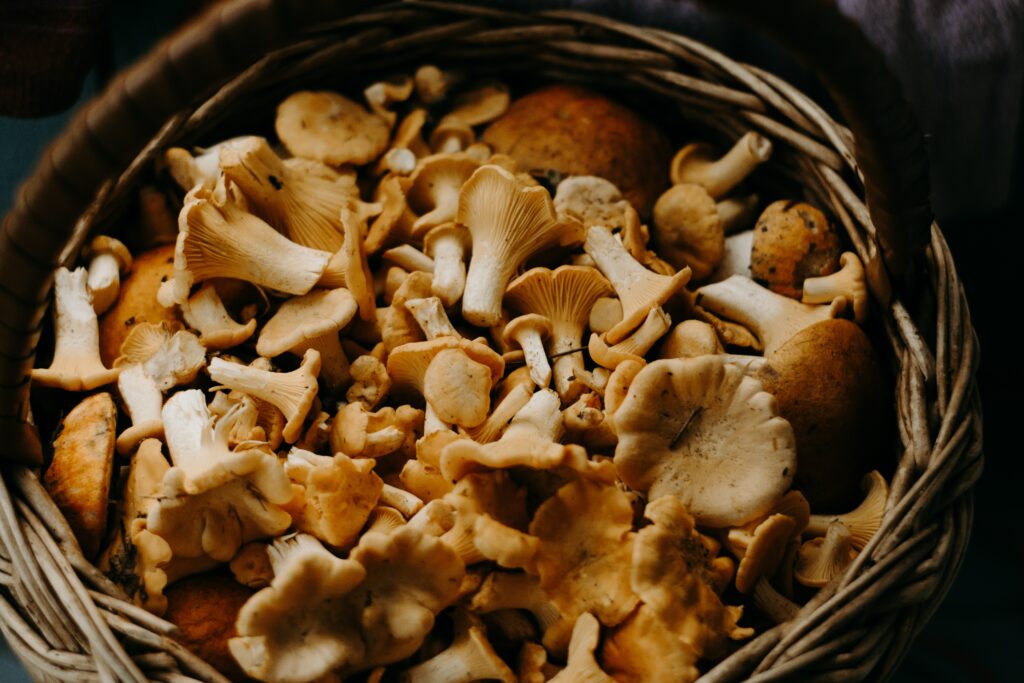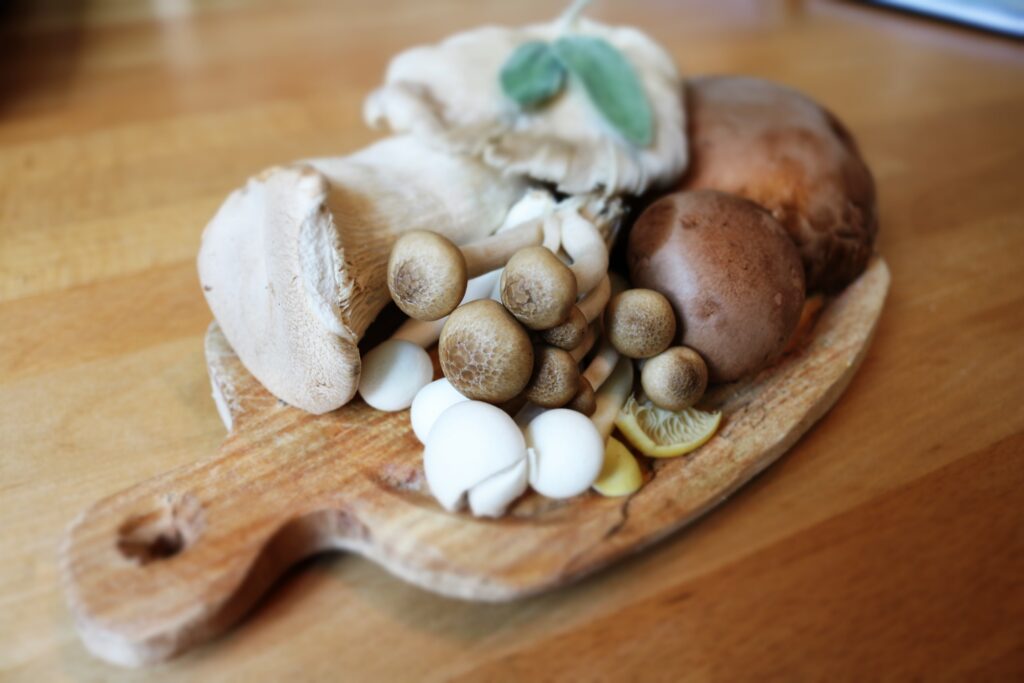Mushrooms are usually celebrated for their unique flavour and culinary versatility, but only recently are they being talked about for their health benefits. Mushrooms actually offer a host of benefits for gut health. Keep reading to learn about the best mushrooms for gut health, as well as how they can support your immune system and digestion.

Benefits of mushrooms:
- Prebiotics: Mushrooms are rich in soluble fibre substances such as chitin, hemicellulose, beta-glucans, and others, which are perfect prebiotics. Prebiotics are essentially food for gut bacteria, which promotes the growth of gut microbiota, increasing gut health! (1)
- Fiber: Mushrooms are high in fibre, so not just the soluble fibre feeds the gut bacteria, but the insoluble fibre supports gut health by encouraging regular bowel movements.
- Vitamin D: mushrooms are the only food we eat that their vitamin D profile is influenced by sunlight exposure. In fact, mushrooms are the only vegetable that delivers substantial vitamin D. Vitamin D gives the intestines cell integrity and strength, providing protection from pathogens (2).
- Immune support: mushrooms, including maitake and reishi, contain compounds that can enhance your immune response.
- Anti-inflammatory: mushrooms contain antioxidants and anti-inflammatory compounds that can help reduce inflammation.
- Weight management: certain mushroom varieties, like lion’s main, have been link to improved satiety and reduced appetite, which may support weight management.
Now that we have established the benefits of gut health, let’s discuss which types of mushrooms provide different benefits.

Best mushrooms for gut health:
- Reishi mushrooms are a type of edible mushroom known for its medicinal properties, including anti-inflammatory effects and improving immunity. Supplements are the most common way of taking reishi mushrooms. Ganoderma lucidum, one species of reishi mushrooms can increase the population of bifidobacterium, a beneficial probiotic bacteria (1).
- Chaga mushrooms are medicinal mushrooms most commonly consumed as a tea. Chaga teas are used to treat gastrointestinal disorders, bacterial infections, and viral infections. A particular category of chaga mushrooms, inonotus obliquus, support growth of Bacteroidetes (1).
- Coriolus mushrooms are also rich in fibers that support Bifidobacterium and Lactobacillus bacteria, two of the most prevalent probiotics. A variety of coriolus mushroom, known as Turkey Tail or Trametes versicolour, has demonstrated the ability to increase diversity in the gut microbiome of humans (1).
- Maitake mushrooms are rich in beta-glucans, which can help regulate blood sugar levels and support gut health.
- Lion’s mane mushrooms may support brain health and cognitive function, as well as promoting the growth of beneficial gut bacteria and reducing inflammation in the digestive tract. Lion’s mane also contain anti-inflammatory and antioxidant compounds, which can help to protect cells against oxidative stress and damage.
Mushrooms aren’t just a tasty addition to your meals, they’re your gut’s new best friend! Remember, when it comes to gut health – variety matters. Step outside the box and try a new variety of mushrooms next time you hit the grocery store. Your microbes won’t be sorry!

Questions about your gut health? Contact us or book a consultation with one of our gut-specialized dietitians today.
References
- Jayachandran M, Xiao J, Xu B. A Critical Review on Health Promoting Benefits of Edible Mushrooms through Gut Microbiota. International journal of molecular sciences. 2017;18(9):1934–. doi:10.3390/ijms18091934
- Akimbekov NS, Digel I, Sherelkhan DK, Lutfor AB, Razzaque MS. Vitamin D and the Host-Gut Microbiome: A Brief Overview. ACTA HISTOCHEMICA ET CYTOCHEMICA. 2020;53(3):33–42. doi:10.1267/ahc.20011
- Tojo R, Suárez A, Clemente MG, de los Reyes-Gavilán CG, Margolles A, Gueimonde M, Ruas-Madiedo P. Intestinal microbiota in health and disease: Role of bifidobacteria in gut homeostasis. World journal of gastroenterology : WJG. 2014;20(41):15163–15176. doi:10.3748/wjg.v20.i41.15163



Leave a Reply